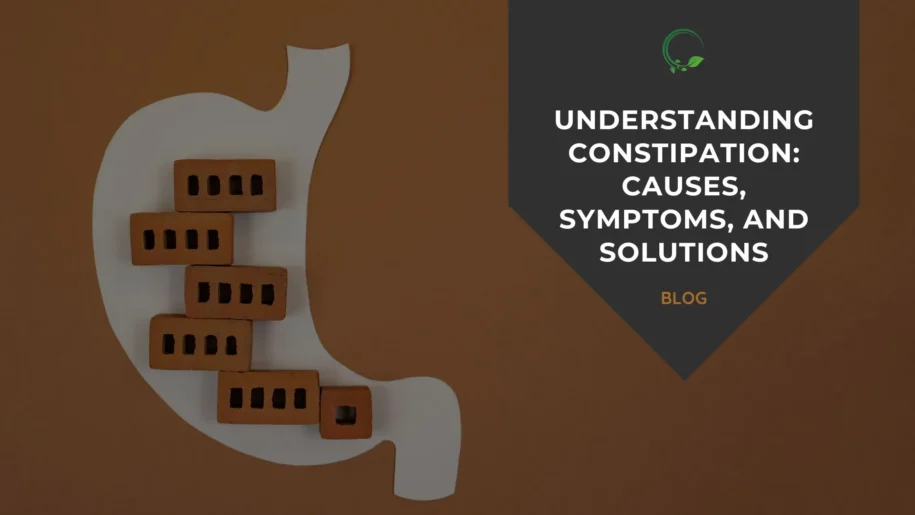Constipation is a common digestive issue that affects millions of people worldwide. While it might not be the most glamorous topic, understanding constipation is essential for maintaining overall gut health and improving your quality of life. Here, we’ll explore what constipation is, its causes, symptoms, and practical solutions to alleviate discomfort.
What Is Constipation?
Constipation occurs when bowel movements become infrequent or difficult to pass. While the definition can vary between individuals, it typically means having fewer than three bowel movements per week. For some, it might also include hard stools, straining during bowel movements, or the sensation of incomplete emptying.
Common Causes of Constipation
Constipation can result from a variety of factors, including:
Dietary Habits
- Low fiber intake can lead to reduced stool bulk and slow movement through the digestive tract.
- Dehydration is another common culprit, as water helps soften stool for easier passage.
Lifestyle Factors
- Sedentary lifestyles can slow digestion, as physical activity promotes gut motility.
- Ignoring the urge to use the restroom can disrupt natural bowel habits over time.
Stress and Anxiety
- The gut-brain connection plays a significant role in digestion. Stress can negatively affect gut motility and contribute to constipation.
Medical Conditions or Medications
- Conditions like hypothyroidism, irritable bowel syndrome (IBS), or diabetes may impact bowel regularity.
- Certain medications, including opioids, antacids, and antidepressants, can cause constipation as a side effect.
Recognizing the Symptoms
The symptoms of constipation can vary, but common signs include:
- Fewer than three bowel movements per week.
- Hard or lumpy stools.
- Straining during bowel movements.
- A sensation of blockage or incomplete evacuation.
- Abdominal discomfort or bloating.
Solutions to Relieve Constipation
1. Increase Fiber Intake
Fiber adds bulk to stool, helping it move through the digestive system. Aim for 25–30 grams of fiber daily by including foods like:
- Fruits: Berries, apples (with skin), and pears.
- Vegetables: Broccoli, carrots, and leafy greens.
- Whole grains: Oats, quinoa, and whole-wheat bread.
- Legumes: Lentils, chickpeas, and black beans.
2. Stay Hydrated
Drink plenty of water throughout the day to keep stools soft and prevent dehydration. Herbal teas and water-rich foods like cucumbers and watermelon can also contribute to hydration.
3. Move Your Body
Regular physical activity, such as walking, yoga, or jogging, stimulates the muscles in the digestive tract and promotes bowel regularity.
4. Establish a Routine
Try to use the restroom at the same time every day, preferably after meals when your body’s natural digestive activity is higher.
5. Limit Constipation-Triggering Foods
Reduce your intake of processed foods, excessive dairy, and high-fat or low-fiber snacks, as these can slow digestion.
6. Consider Natural Remedies
Prunes or prune juice are natural laxatives that can help alleviate constipation. Psyllium husk, a soluble fiber supplement, may also provide relief.
7. Seek Medical Advice
If constipation persists or is accompanied by alarming symptoms like severe pain, blood in stool, or unexplained weight loss, consult a healthcare professional promptly.
Preventing Constipation Long-Term
Preventative strategies include maintaining a balanced diet rich in fiber, staying active, and managing stress effectively. Cultivating healthy habits can keep your digestive system running smoothly and help you avoid future discomfort.
Constipation is a manageable condition that responds well to dietary and lifestyle changes. By understanding its causes and taking proactive steps, you can support your gut health and enjoy greater comfort and regularity. If you’re ever in doubt, don’t hesitate to seek advice from a healthcare provider or nutrition expert.

